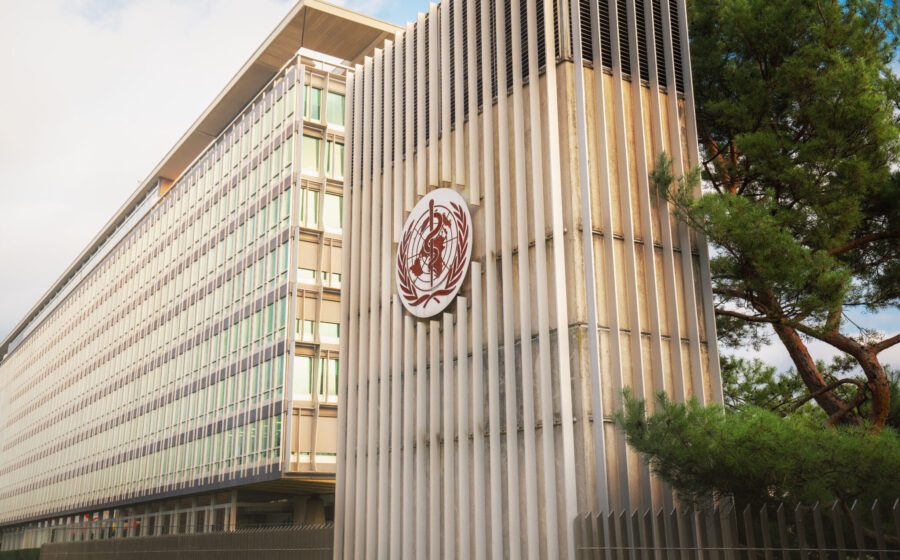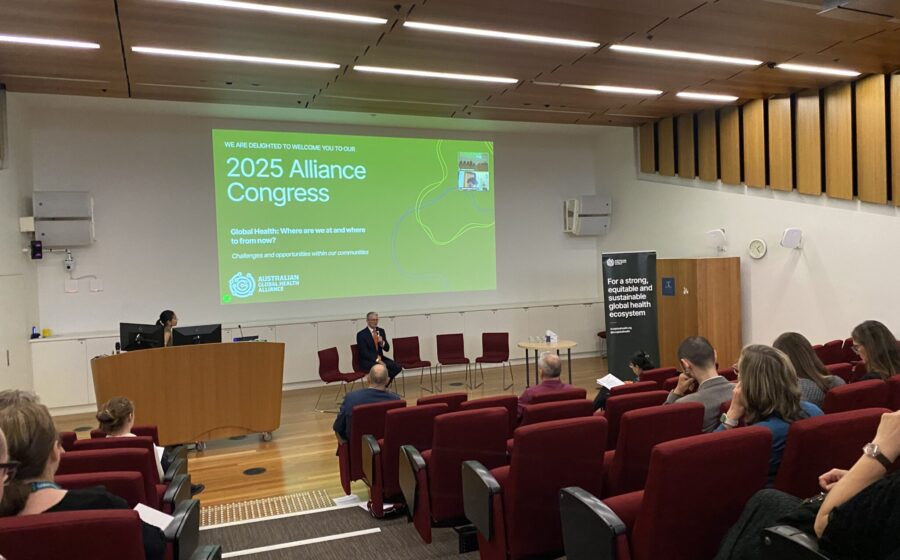-
- Technology transfer agreements signed to enable expanded production of high-quality antigen rapid tests in Africa and Latin America
- Agreements signed with DCN Dx to transfer know-how to WAMA Diagnóstica (Brazil), and Bionote and Mologic to transfer know-how to DIATROPIX of the Institut Pasteur de Dakar (Senegal)
- Separate partnership between Viatris (South Africa) and Guangzhou Wondfo Biotech (China) supported to enable commercialization and distribution of high-quality Ag RDTs in low- and middle-income countries
- Agreements follow open call launched last year by FIND and Unitaid on behalf of the Access to COVID-19 Tools (ACT) Accelerator, to drive equitable access to rapid tests for COVID-19
Geneva, 15 July 2021 – Local manufacturing of COVID-19 rapid tests in Africa and Latin America will be dramatically expanded, thanks to investment from FIND, the global alliance for diagnostics, and Unitaid.
Following a call for Expressions of Interest launched under the Access to COVID-19 Tools (ACT)-Accelerator Diagnostics Pillar, contracts have now been finalized to drive equitable access to fit-for-purpose antigen rapid diagnostic tests (Ag RDTs) for COVID-19.
The pandemic has exposed how fragile health systems and an exclusive reliance on global supply chains leave many countries without access to the tests they need to control COVID-19. Today, high-income countries are testing people for COVID-19 over 60 times more than low-income countries.[1] Expanded production capacity in local and regional hubs is critical to ensuring that healthcare providers in low- and middle-income countries (LMICs) can implement effective testing strategies to contain the spread of the virus.
Agreements have been signed to support collaborations between Xixia Pharmaceuticals (a subsidiary of Viatris) and Guangzhou Wondfo Biotech (Wondfo), DCN Dx, and WAMA Diagnóstica, and DIATROPIX of the Institut Pasteur de Dakar, Bionote, and Mologic.
FIND and Unitaid are supporting the creation of a Centre of Excellence at DCN Dx to facilitate RDT technology transfer to LMIC manufacturers. WAMA Diagnóstica, based in Brazil, is the first of these, and will supply the Latin America and Caribbean region. Test volumes are expected to reach 2 million tests per month, with a ceiling price of US$2.00 (ex-works).
To serve the African continent, DIATROPIX of the Institut Pasteur de Dakar in Senegal is being supported to scale up manufacturing of Ag RDTs transferred from Mologic and Bionote. Through this support, diaTROPIX will seek regulatory authorization for the transferred tests and commercialize them under its own brand, with the aim of reaching 2.5 million tests per month by 2022, at prices ranging from US$2.50 to US$2.00 (ex-works) with a view to further reductions in the near future.
In a further boost to testing capacity in LMICs, FIND and Unitaid announce that Wondfo, based in Guangzhou, China, is teaming up with Viatris (operating through its subsidiary Xixia Pharmaceuticals based in Gauteng, South Africa) to bring its low-cost Ag RDTs to market in LMICs. This partnership between a high-volume manufacturer and a distributor with global reach has the potential to produce 144 million tests per year, at a ceiling price of US$2.50 (ex-works).
Recently released WHO guidance on national SARS-CoV-2 testing strategies emphasises the important role of high-quality Ag RDTs. They remain the primary diagnostic test for detection of active SARS-CoV-2 infection in decentralized settings where timely molecular testing is not available.
Marta Fernández Suárez, Senior Director of R&D at FIND, said: “Scaling up testing capacity in LMICs is one of our highest priorities. The expression of interest (EOI) process has enabled us to identify partnerships that we believe can have a great impact in key regions that are of critical importance to the pandemic and potentially beyond, to help ensure that everyone who needs a test can get one.”
Vincent Bretin, Director of Results at Unitaid, said: “Increasing the capacity of local and regional hubs to produce COVID-19 tests will be vital if we are to ensure truly equitable access to this crucial tool. Currently the vast majority of rapid tests being used in low- and middle-income countries are manufactured in just two countries in one region, so these agreements are an important step in ensuring that countries are equipped to detect cases of COVID-19, helping contain outbreaks and bringing a swifter end to the pandemic.”
Announcement of these agreements follows a technical workshop on local production of diagnostics in LMICs, hosted by the World Health Organization, UNDP and FIND, to contribute to the ongoing development of comprehensive and practical measures to catalyse and sustain production of diagnostics in these countries. More details and a recording of the meeting is available here.
[1] Median values of 7-day rolling averages in each income group, as reported by countries. Data correct as at 30 June 2021, www.finddx.org/covid-19/test-tracker
About the expression of interest (EOI)
The EOI was launched on 4 July 2020 by FIND and Unitaid, on behalf of the R&D and Digital and the Market Readiness Working Groups of the ACT-Accelerator Diagnostics Pillar. It aims to accelerate supply and availability of quality-assured and regulatory-approved fit-for-purpose SARS-CoV-2 Ag RDTs that meet WHO criteria of quality, cost and accessibility. Interventions include accelerating late-stage product development and optimization, facilitating technology transfer activities, conducting performance evaluation studies to support regulatory submissions, increasing production capacity, addressing supply chain challenges, and strengthening local capacity for development and deployment of new tests within national testing strategies. Driving down prices and supporting the use of less invasive specimens to enable faster LMIC uptake are also critical. Over 100 applications were received, with 34 selected for review by a panel of external experts. A first collaboration with Premier Medical Corporation in India was announced earlier this year.
About FIND
FIND, the global alliance for diagnostics, seeks to ensure equitable access to reliable diagnosis around the world. We connect countries and communities, funders, decision-makers, healthcare providers and developers to spur diagnostic innovation and make testing an integral part of sustainable, resilient health systems. We are working to save 1 million lives through accessible, quality diagnosis, and save US$1 billion in healthcare costs to patients and health systems. We are co-convener of the Access to COVID-19 Tools (ACT) Accelerator diagnostics pillar, and a WHO Collaborating Centre for Laboratory Strengthening and Diagnostic Technology Evaluation. For more information, please visit www.finddx.org.
About Unitaid
Unitaid is a global health agency engaged in finding innovative solutions to prevent, diagnose, and treat diseases more quickly, cheaply, and effectively, in low- and middle-income countries. Its work includes funding initiatives to address major diseases such as HIV/AIDS, malaria, and tuberculosis, as well as HIV co-infections and co-morbidities such as cervical cancer and hepatitis C, and cross-cutting areas, such as fever management. Unitaid is now applying its expertise to address challenges in advancing new therapies and diagnostics for the COVID-19 pandemic, serving as a key member of the Access to COVID-19 Tools (ACT) Accelerator. Unitaid is hosted by the World Health Organization.About the ACT-Accelerator
The Access to COVID-19 Tools (ACT) Accelerator is a global coalition of organizations developing and deploying the new diagnostics, treatments and vaccines needed to end the acute phase of the pandemic. Pooling the expertise of its many partners, the ACT-Accelerator has quickly ushered in rapid, affordable tests and effective medicines, and established the COVAX facility for the equitable procurement and distribution of vaccines in low- and middle-income countries.
The ACT Accelerator’s work is more vital than ever as new variants of the virus threaten to resist current COVID-19 tools, posing the risk of more death, illness, and social and economic harm. The ACT-Accelerator has four areas of work, or pillars:
- A diagnostics pillar, led by the Global Fund and FIND
- A therapeutics pillar, led by Unitaid and Wellcome
- A vaccines pillar, led by CEPI, Gavi and WHO and implementing partner UNICEF
- A health systems connector, led by the World Bank and the Global Fund
A workstream on access and allocation of COVID-19 products, hosted by WHO, cuts across the four pillars.
The ACT Accelerator partnership was formed at the onset of the pandemic in response to a call from G20 leaders, and was launched by WHO, the European Commission, France, and the Bill & Melinda Gates Foundation. Critical funding for the effort comes from an unprecedented mobilization of donors, including countries, the private sector, philanthropists and multilateral partners. It has supported the fastest, most coordinated, and successful global effort in history to develop tools to fight a disease.
Media contacts
FIND
Sarah-Jane Loveday
Director of Communications
media@finddx.org | +41 79 431 62 44
Unitaid
Hervé Verhoosel
Director a.i. External Relations and Communication
verhooselh@unitaid.who.int | tel. +44 77 29 618 634
Unitaid
Thalia Bayle
Communications Officer
baylet@unitaid.who.int | tel. +41 79 660 56 37





